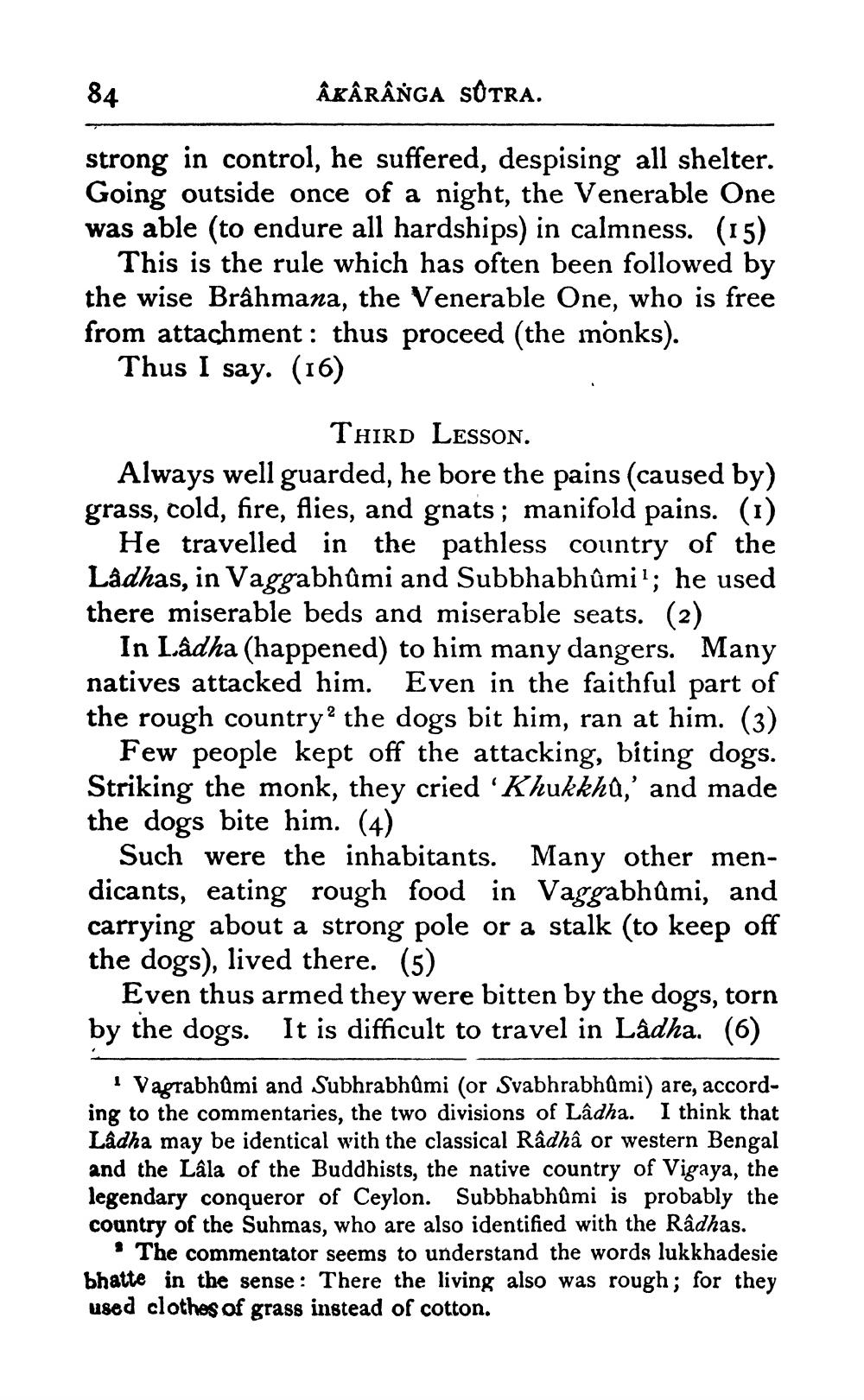________________
84
ÂKÂRÂNGA SÚtra.
strong in control, he suffered, despising all shelter. Going outside once of a night, the Venerable One was able to endure all hardships) in calmness. (15)
This is the rule which has often been followed by the wise Brâhmana, the Venerable One, who is free from attachment: thus proceed (the monks).
Thus I say. (16)
THIRD LESSON. Always well guarded, he bore the pains (caused by) grass, cold, fire, fies, and gnats; manifold pains. (1)
He travelled in the pathless country of the Lådhas, in Vaggabhūmi and Subbhabhûmi; he used there miserable beds and miserable seats. (2)
In Lâdha (happened) to him many dangers. Many natives attacked him. Even in the faithful part of the rough country? the dogs bit him, ran at him. (3)
Few people kept off the attacking, biting dogs. Striking the monk, they cried 'Khukkha,' and made the dogs bite him. (4)
Such were the inhabitants. Many other mendicants, eating rough food in Vaggabhūmi, and carrying about a strong pole or a stalk (to keep off the dogs), lived there. (5)
Even thus armed they were bitten by the dogs, torn by the dogs. It is difficult to travel in Lâdha. (6)
! Vagrabhůmi and Subhrabhumi (or Svabhrabhūmi) are, according to the commentaries, the two divisions of Lâdha. I think that Ladha may be identical with the classical Râdhâ or western Bengal and the Lâla of the Buddhists, the native country of Vigaya, the legendary conqueror of Ceylon. Subbhabhumi is probably the country of the Suhmas, who are also identified with the Râdhas.
• The commentator seems to understand the words lukkhadesie bhatte in the sense: There the living also was rough; for they used clothes of grass instead of cotton.




